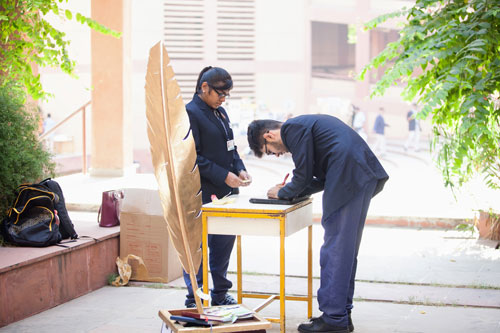
“This platform provides students with opportunities to exhibit their creativity, problem-solving skills, innovation and entrepreneurial skills.” – Deepti Sawhney
When families, community groups, businesses and educators come together to support learning, children can achieve more. The Mahattattva Foundation in India, a boutique consultancy for schools focused on digital leadership, technology integration and teacher professional development, works toward facilitating this goal. Since 2014, its annual summit on Educational Technology provides a platform for students to exhibit their problem-solving and entrepreneurial skills.
Deepti Sawhney is the Founder and CEO of The Educational Technology Summit Series, which was recently selected by the Centre for Technology, Innovation and Competition (CTIC) at the University of Pennsylvania (UPenn) to be converted into a case study. This year’s Summit in Neemrana Rajasthan is based on the theme — Creativity, Innovation and Entrepreneurship. Students participating from various schools around India will be hosted at NIIT University. “The idea is to get the K-12 students to interact with the university students as mentors,” says Sawhney. During the Summit, students will create prototypes for new products and business executives will provide constructive feedback on the work developed by the students.
The Global Search for Education invited Sawhney (winner of the Leadership Award at BETT Asia 2019 for her work on ‘Design Thinking for Social Change’) to tell us more about her program
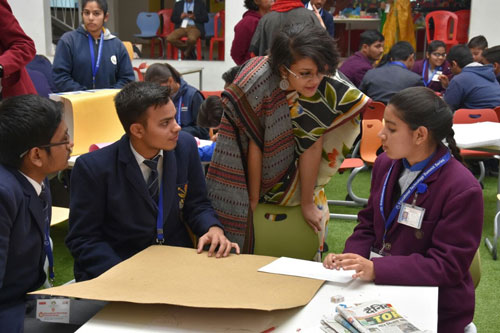
“The participating students are encouraged to solve real-world authentic problems by innovative design thinking.” – Deepti Sawhney
Deepti, in your own words – what is the main idea behind the Design-Thinking for Social Change and the Educational Technology Summit Series?
The main idea behind the initiative, “Design-Thinking for Social Change,” is to provide student-led learning opportunities. We find that these opportunities are not provided in most schools in India, especially the Government Schools. This initiative aims to provide a level playing field for all students — whether they are studying in rural schools with lesser resources or in urban schools with all the amenities. This platform provides students with opportunities to exhibit their creativity, problem-solving skills, innovation and entrepreneurial skills.
What have you learned from the process since the initiative began?
This initiative started in 2014 with a platform for thought leaders to discuss decision-making strategies regarding educational technology, ensure continuous and sustainable professional development for staff, and showcase best practices in technology integration.
The idea was to make the decision makers understand the gap areas so that the needs could be identified and aligned for seeking solutions in the teaching-learning community. In the subsequent years, the students were asked to identify a real-life problem and provide a solution for it, using sustainable and cost-effective technology. All the case studies were peer evaluated, with a major emphasis on the impact created.
The primary focus of the subsequent Summits has been to give students an understanding of the design-thinking cycle, through a practical programme. The participating students are encouraged to solve real-world authentic problems by innovative design thinking. They document their progress as they follow the design cycle to arrive at a feasible solution. They then implement the solution and evaluate it, following thorough testing. These projects are then peer evaluated and celebrated at the Summit.
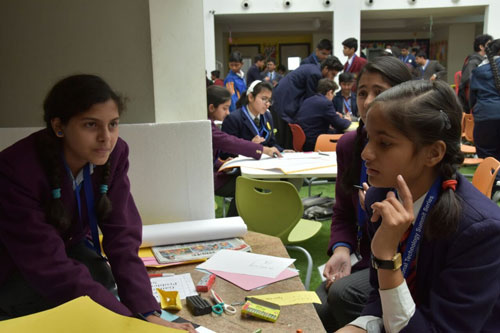
“The greatest challenge I faced was schools saying that they don’t have time in their Timetable to conduct innovative activities in school.” – Deepti Sawhney
Design Thinking is becoming more prominent in new curriculums globally. Do you believe we will ultimately see this kind of learning in classrooms everywhere?
Design Thinking or any problem solving skills are imperative for our students today. The simple problems in this world are already solved; the complex ones are challenges for this generation. Students need to be equipped with skills to be able to live in this ever-changing world.
I hope educators all over the world see this as a need and update themselves to be able to transfer these skills to their students.
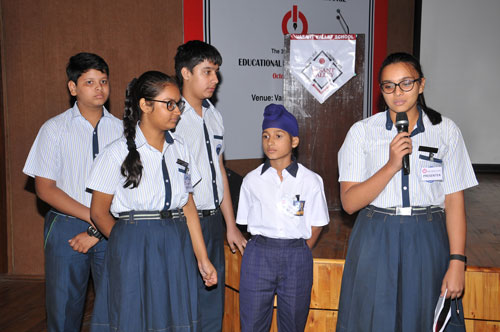
“Only when the schools saw the value, did they also start their own Design Thinking projects.” – Deepti Sawhney
How would you describe your greatest accomplishments in terms of raising awareness for design-thinking to date?
There are more than 250 schools, all over India, making “Design-Thinking for Social Change” projects and partnering with rural and remote schools to find solutions to complex problems. They are actually evaluating and critiquing themselves to find the best way to solve these challenges.
Some of the case studies from 2015 can be seen here.
What have been your greatest challenges and how have you tackled them?
The greatest challenge I faced was schools saying that they don’t have time in their Timetable to conduct innovative activities in school. I succeeded only after I worked with a few schools and got them to develop projects with remote, rural schools. Only when the schools saw the value, did they also start their own Design Thinking projects.
Thank you Deepti.
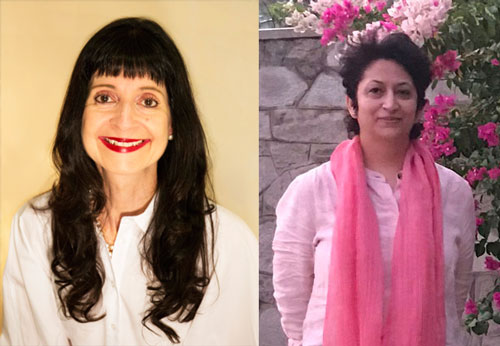
C. M. Rubin and Deepti Sawhney
Thank you to our 800 plus global contributors, teachers, entrepreneurs, researchers, business leaders, students and thought leaders from every domain for sharing your perspectives on the future of learning with The Global Search for Education each month.
C. M. Rubin (Cathy) is the Founder of CMRubinWorld, an online publishing company focused on the future of global learning and the co-founder of Planet Classroom. She is the author of three best-selling books and two widely read online series. Rubin received 3 Upton Sinclair Awards for “The Global Search for Education”. The series which advocates for all learners was launched in 2010 and brings together distinguished thought leaders from around the world to explore the key education issues faced by nations.
Follow C. M. Rubin on Twitter: www.twitter.com/@cmrubinworld



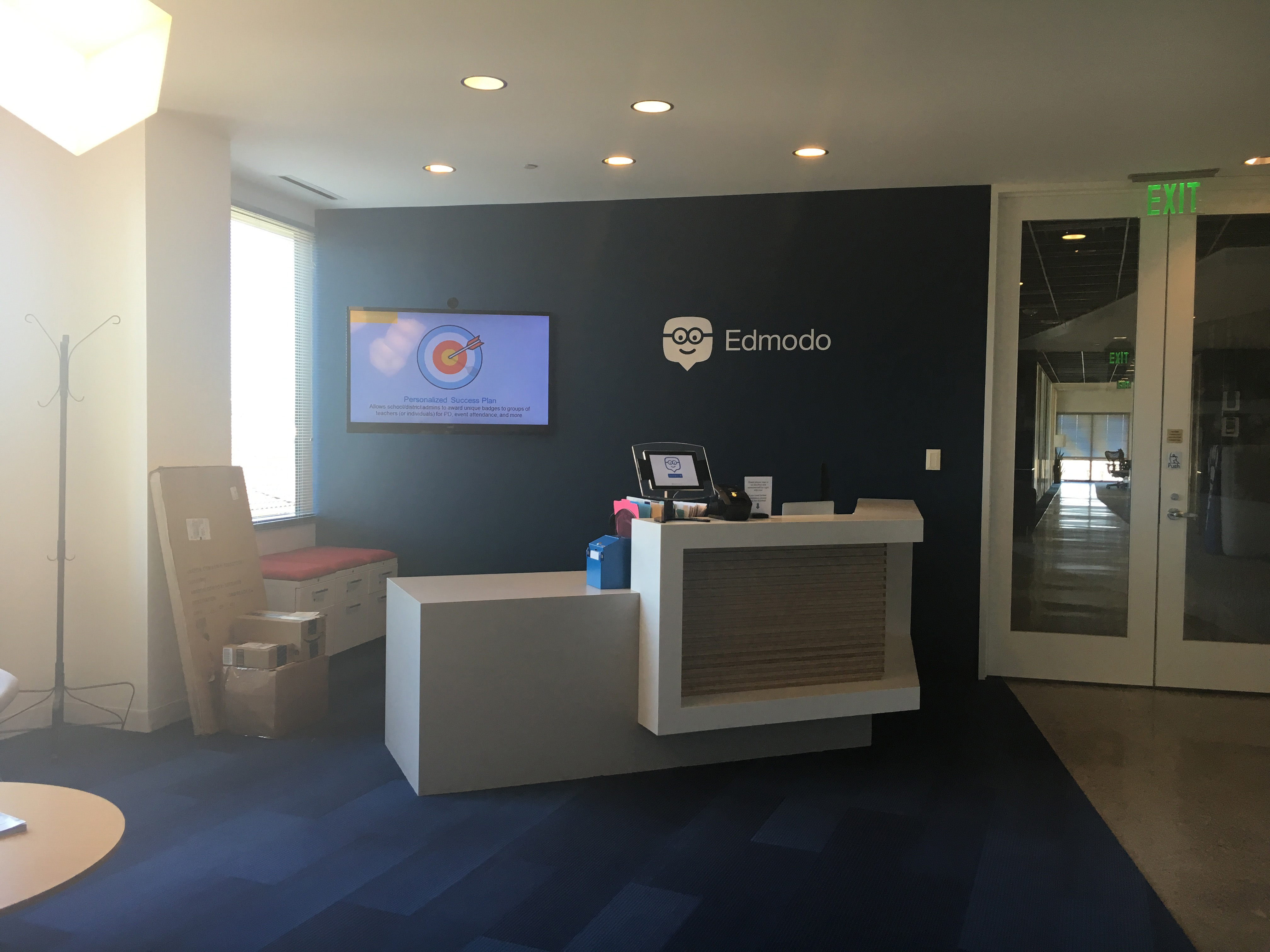

Recent Comments